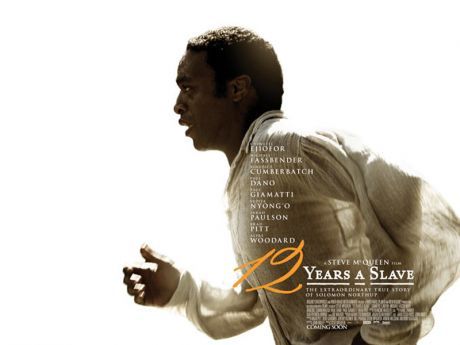Arts
You are here
12 Years a Slave: Hollywood gets it half right

October 28, 2013
Twelve Years a Slave is being rightfully feted as a “searing portrayal,” a “visceral experience” with “monumental performances,” and other accolades. But this is disappointing as it is not the most compelling slavery drama available to an aspiring film-maker wishing to craft a memorable indictment of 19th century American racism and resistance.
It's director and stars should be given credit for delivering a compelling story of a free New Yorker—black, middle class musician Solomon Northup—who is kidnapped and sold into slavery in 1840s America. The screenplay is based on Northup's memoir written after his eventual escape and return to freedom in the northern States, and so it understandably follows his story closely.
The daily cruelties of slavery are front and centre. The whippings, beatings, lynchings, casual torture, manipulation of fear, and rape all loom large in 12 Years. One audience member got up part-way through and left, muttering that she could not bear to see any more flayed skin, and whip marks the ran to the bone.
Self-emancipation
But for all of its merits, and they are many, I could not help feeling let down at the films end. I was hoping for Northup to liberate himself—to go all Django Unchained on the master, to fight. I realize the material needs to keep faith with the man's actual experience, but the climax left me empty. My disquiet comes from the fact that he must (or does at least) rely on white men—and wealthy white men at that—to save him. He is almost a passive bystander in his own liberation.
While it may be true in Northup's case that this happened, the message conveyed by his story is “have wealthy white patron(s) who can bail you out of trouble.” The message one would hope would come from a “searing, gripping, honest” portrayal of slavery is “End this inhumanity. Root it out limb and branch so that it may never occur to anyone ever again.” Those are two very different messages.
Which brings up the question: Why, of all the slave stories out there, was this the one that got made into a major film? Why not a movie about Frederick Douglass, who escaped after 20 years as a slave and became a leading abolitionist? Or any of the sixteen slave revolts that happened in the Caribbean between 1790 and 1848? Why not the story of Toussaint L'Ouverture, who led an uprising against French colonialism that liberated the island and founded the state of Haiti? If depicting solidarity from white abolitionists, why not a movie about John Brown's attack on Harpers Ferry, an insurrection against slavery?
12 years should be required viewing for high school American history classes. It should be part of any discussion on colonialism, imperialism, slavery, racism, and civil rights. It is perhaps a shame that the film could only show the symptoms of the disease, when people need to see the causes and the cures.
Section:










